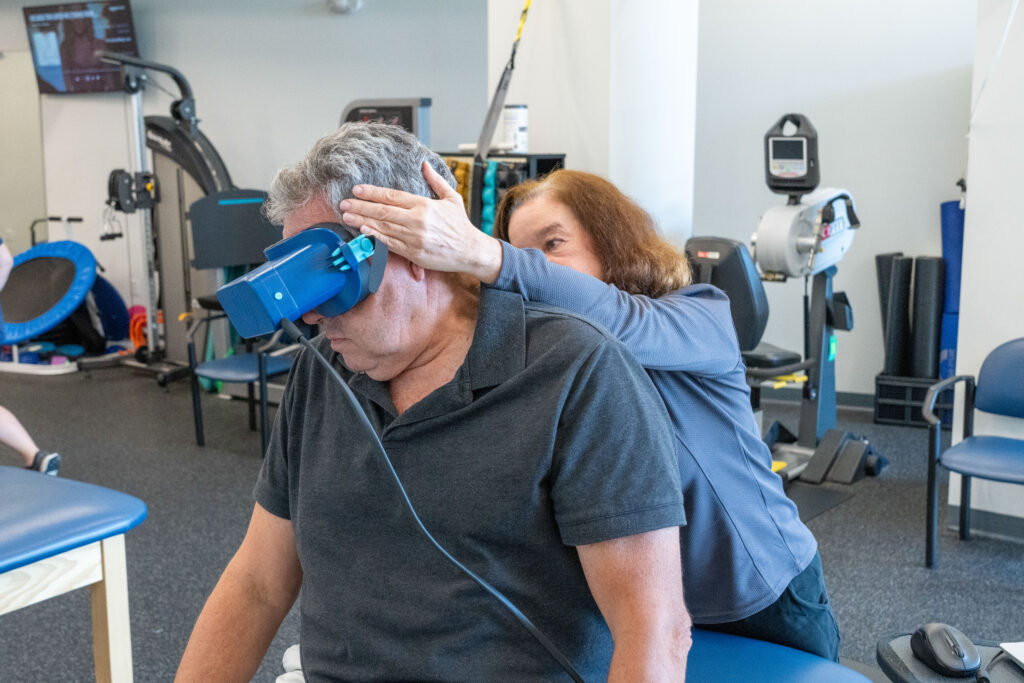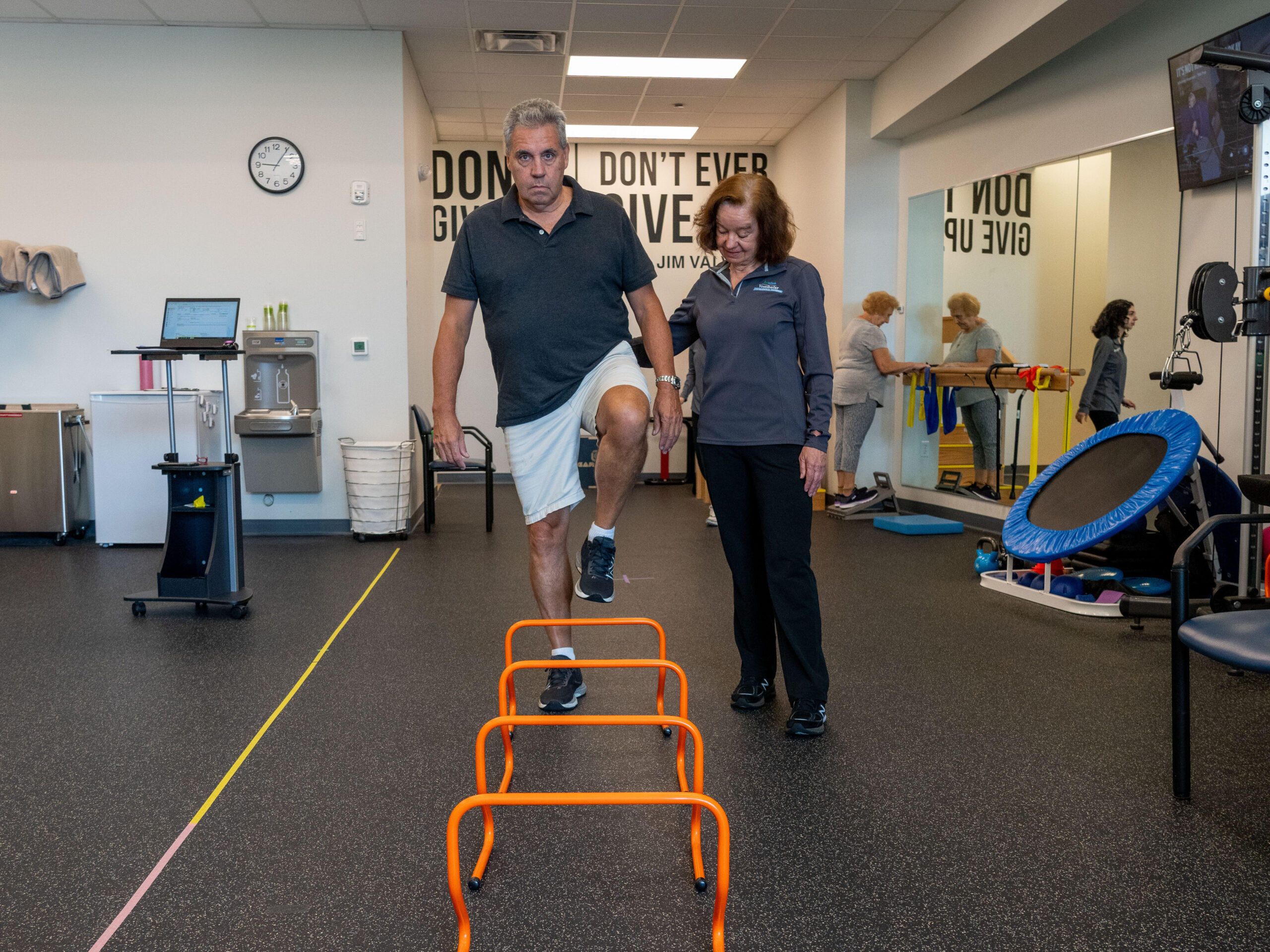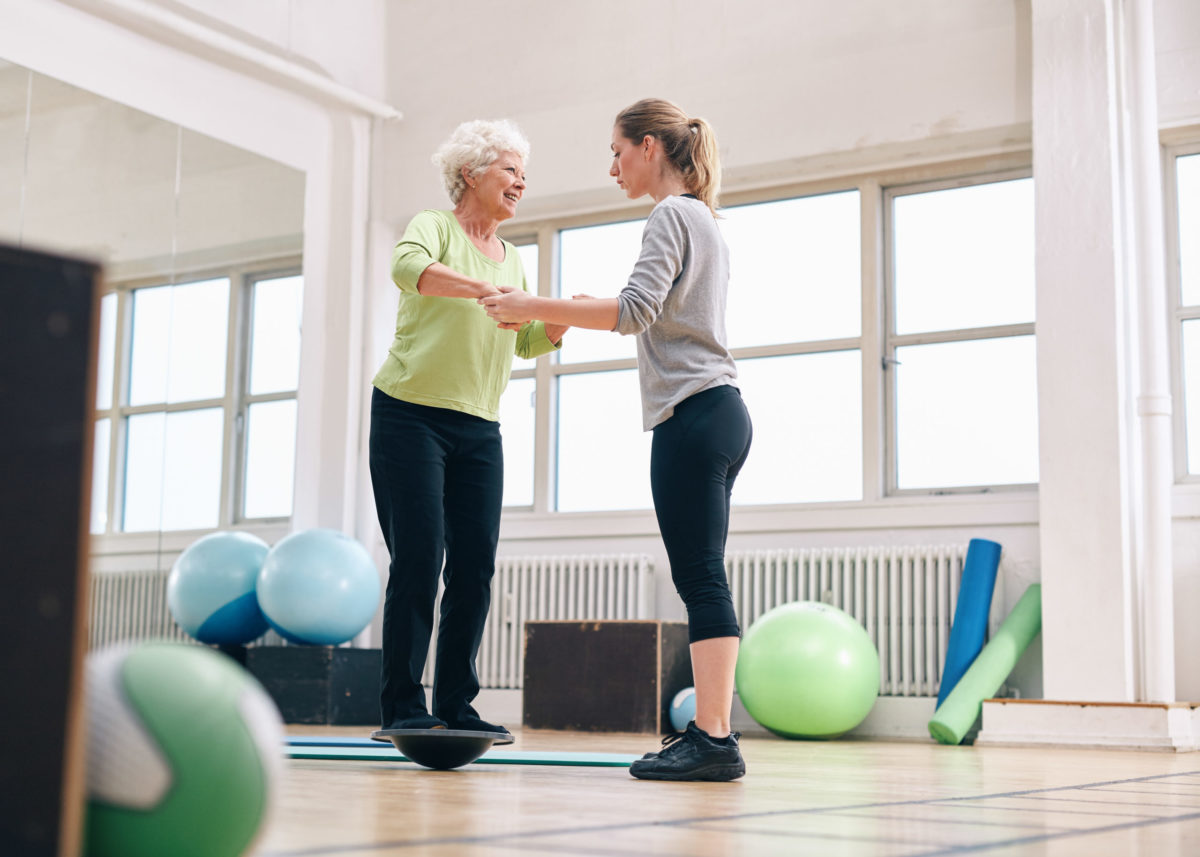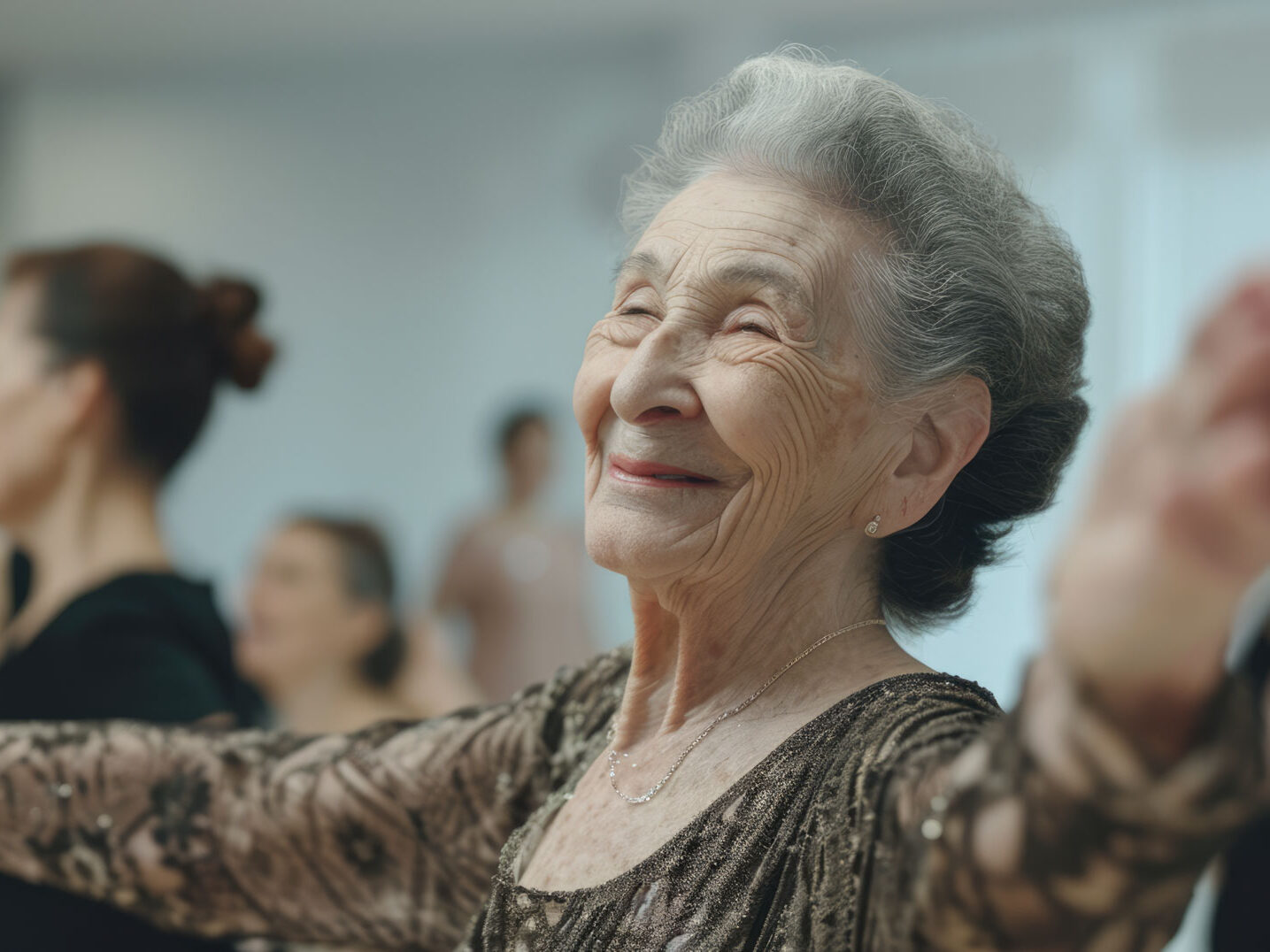
Vestibular Rehab
At Ivy Rehab Network, our physical therapists are specially trained in treating disorders of the vestibular system. Our vestibular rehab program is an exercise-based technique that is designed to decrease dizziness, help improve the ability to steady your vision and retrain parts of your postural control due to vestibular dysfunction. Through vestibular rehabilitation therapy (VRT), we can help you regain balance and improve your ability to perform daily activities safely.
What is the vestibular system?
The vestibular system is the portion of the inner ear and brain that helps control your balance and equilibrium. If damaged, the vestibular system can make you feel unbalanced – like you are suddenly spinning, tilting, or floating.


Causes & risk factors of vestibular disorders.
Vestibular disorders affect about 35% of adults over the age of 40 and account for 60 million doctor visits every year. Even as much as 5% (3.3 million) of children from ages 3-17 have a dizziness or balance problem. Request an appointment.
Common disorders that can affect the function of the vestibular system are:
- Benign Paroxysmal Positional Vertigo (BPPV)-
- Vestibular Neuritis
- Vestibular Labyrinthitis
- Meniere’s Disease
- Ototoxicity
- Perilymph fistula
- Acoustic Neuroma
- Stroke (CVA)
- CHI/TBI (Closed Head Injury / Traumatic Brain Injury)
- Post-Concussion Syndrome
- Multiple Sclerosis (MS)
Symptoms of vestibular issues.
Symptoms for vestibular dysfunction can be brought about my many forms of pathology, and can be differentiated by their anatomic origin as either central (within the brain), or peripheral (within the vestibular apparatus in the inner ear). Symptoms of vestibular issues include:
- Vertigo
- Dizziness
- Imbalance
- Lightheadedness
- Disequilibrium
- Oscillopsia (visual changes while moving)
- Nystagmus
- Ocular tracking difficulty and eye fatigue
- Nausea
- Falls
- Difficulty walking
Symptoms of a dysfunctional vestibular system can last a few minutes to a few hours or more and may come and go.


Recovery from vestibular disorders.
While there are numerous ways to treat and recover from vestibular disorders, physical therapy has been one of the most successful forms of treatment. By assessing your symptoms, our physical therapists will determine the best course of treatment in conjunction with your physician. From Benign Paroxysmal Positional Vertigo (BPPV) to Post-Concussion Syndrome, our specially trained physical therapists can eliminate your symptoms as well as improve your balance, your safety, and your function in daily life.
How Vestibular Rehab Works
Vestibular rehabilitation is a specialized form of physical therapy that focuses on helping your body adapt to dysfunction in the vestibular system. It involves a series of rehabilitation exercises tailored to address your unique symptoms and needs.
Rehabilitation Exercises
- Exercises in vestibular therapy focus on improving balance, eye movement coordination, and postural stability.
Gaze stability exercises help improve your ability to maintain a steady visual focus during head movements. - Habituation exercises reduce vestibular dizziness by gradually exposing you to the movements that trigger your symptoms, allowing your brain to adapt.
Adaptation and Compensation
- Through vestibular rehab, the brain learns to adapt and compensate for the loss of function in the inner ear, helping to improve motion tolerance and reduce dizziness.
Training and Practice
- Our therapists will guide you through exercises that focus on improving your balance, reducing dizziness, and strengthening your body’s ability to handle movement and visual stimulation.
FAQs
How long does vestibular rehab take to work?
The duration of vestibular rehab varies based on the condition and individual needs. Some patients begin to feel better after a few sessions, while others may require more time for their symptoms to improve. Your physical therapist will monitor your progress and adjust your treatment plan accordingly.
Is vestibular rehab safe for older adults?
Yes, vestibular rehabilitation therapy is safe for older adults, particularly those experiencing balance issues or dizziness. It can help improve stability, reduce the risk of falls, and enhance overall quality of life.
What conditions are treated with vestibular rehab?
Vestibular rehab is effective for treating a wide range of conditions such as vertigo, BPPV, vestibular neuritis, post-concussion syndrome, and balance issues related to neurological conditions like multiple sclerosis, stroke, and Parkinson’s disease.

Get Started with Vestibular Rehabilitation Therapy at Ivy Rehab
Regaining balance and stability takes time and targeted support. At Ivy Rehab, we offer specialized vestibular rehabilitation therapy to help individuals reduce dizziness, improve balance, and regain confidence. Our expert therapists work with you to create a personalized treatment plan that targets your unique symptoms and restores your ability to perform daily activities safely.

